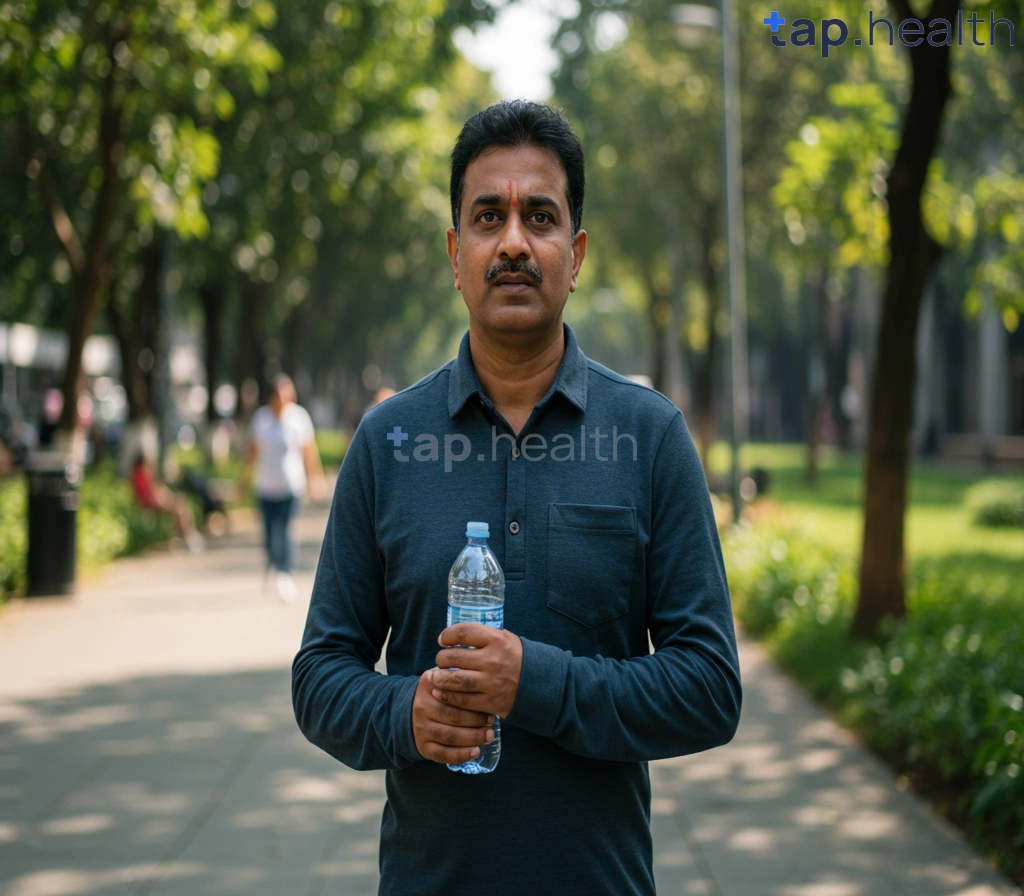Table of Contents
- Conquer Diabetes Fatigue: Causes & Solutions
- Understanding Diabetes-Related Fatigue: A Comprehensive Guide
- Is Diabetes Causing Your Fatigue? Find Relief Today!
- Manage Diabetes Fatigue: Effective Strategies and Tips
- Fighting Fatigue: Diabetes Management for Increased Energy
- Frequently Asked Questions
- References
Living with diabetes can be challenging, and one of the most debilitating aspects is the constant battle against fatigue. Feeling perpetually tired isn’t just inconvenient; it can significantly impact your ability to manage your condition effectively. This blog post tackles the crucial issue of Managing Diabetes Fatigue: Understanding Causes and Finding Relief. We’ll explore the various reasons why diabetes can lead to exhaustion, from blood sugar fluctuations to underlying health conditions, and provide practical strategies to help you regain your energy and improve your overall well-being. Let’s work together to conquer this common hurdle and reclaim your vitality!
Conquer Diabetes Fatigue: Causes & Solutions
Diabetes significantly impacts daily life, contributing to a staggering 9-12% loss in work productivity in many countries due to complications and absenteeism. In hot and humid climates like those prevalent in India and other tropical regions, managing diabetes fatigue becomes even more challenging. Understanding the causes is the first step towards finding relief.
Understanding the Root Causes
Fatigue in individuals with diabetes can stem from several factors. High or low blood sugar levels are common culprits. Hyperglycemia (high blood sugar) can lead to dehydration, impacting energy levels. Conversely, hypoglycemia (low blood sugar) causes immediate fatigue and weakness. Poorly managed diabetes can also lead to other complications such as nerve damage (neuropathy), kidney problems, and sleep disturbances, all of which exacerbate fatigue. The heat and humidity prevalent in many Indian and tropical countries can further compound these issues, leading to increased dehydration and exhaustion.
Finding Relief and Managing Fatigue
Effective diabetes management is crucial. Regular blood sugar monitoring, adhering to prescribed medication, and maintaining a balanced diet are vital. Prioritizing adequate hydration, especially in warmer climates, is non-negotiable. Regular exercise, while challenging, can significantly improve energy levels and overall well-being. However, it’s crucial to consult with your doctor before starting any new exercise routine. Finally, prioritizing sleep and managing stress through techniques such as yoga and meditation can also make a significant difference. For more information on the challenges that come with age, check out our blog on Managing Diabetes as You Age: Challenges and Solutions.
Regional Considerations for Diabetes Management
In India and tropical countries, access to healthcare and resources might vary. Seek guidance from healthcare professionals familiar with the regional context. Consider joining local diabetes support groups for peer support and practical advice tailored to your environment. Remember, managing diabetes fatigue requires a holistic approach, addressing both the physiological and environmental factors contributing to it. Taking proactive steps today can lead to a healthier, more energized tomorrow. If you’re wondering if diabetes is the cause of your tiredness, read our article on Does Diabetes Make You Tired?
Understanding Diabetes-Related Fatigue: A Comprehensive Guide
Diabetes fatigue is a debilitating symptom affecting a significant portion of the population, particularly those aged 20-64. According to the International Diabetes Federation’s Diabetes Atlas, 61% of people with diabetes fall within this age group, a substantial number experiencing the pervasive impact of this condition in their prime years. In Indian and tropical countries, where diabetes prevalence is high, understanding and managing this fatigue is crucial for maintaining quality of life. This fatigue isn’t just tiredness; it’s often a persistent, overwhelming exhaustion that impacts daily activities.
Causes of Diabetes Fatigue
Several factors contribute to diabetes-related fatigue. Poorly controlled blood sugar levels, both high (hyperglycemia) and low (hypoglycemia), are primary culprits. High blood sugar impairs the body’s ability to use energy efficiently, leading to weakness and lethargy. Conversely, low blood sugar deprives the body of essential fuel, resulting in similar symptoms. Dehydration, a common complication of diabetes, can further exacerbate fatigue. Additionally, underlying conditions like anemia, thyroid problems, and sleep apnea, which are more prevalent in certain populations, can interact with diabetes to amplify fatigue. In tropical climates, the heat itself can intensify fatigue in individuals with diabetes. The connection between diabetes and sleep apnea, for example, is a significant factor to consider, as detailed in our article, The Connection Between Diabetes and Sleep Apnea.
Finding Relief from Diabetes Fatigue
Managing diabetes fatigue requires a multifaceted approach. Prioritizing consistent blood glucose monitoring is essential. Following a prescribed diabetes diet, rich in fruits, vegetables, and whole grains, provides sustained energy. Regular exercise, tailored to individual capabilities and the tropical climate, improves insulin sensitivity and overall energy levels. Adequate hydration is paramount, especially in hot and humid climates. Addressing underlying health issues, such as anemia or sleep apnea, can significantly impact energy levels. Consulting with a healthcare professional for personalized advice and medication management is crucial. Remember, prioritizing self-care and seeking professional help can make a significant difference in managing diabetes fatigue and improving overall well-being. For individuals in India and tropical countries, seeking guidance from local healthcare providers familiar with regional health challenges is particularly important. It’s also important to understand the link between diabetes and obesity, which can significantly impact fatigue levels. For more information, please read our blog on Understanding the Link Between Diabetes and Obesity.
Is Diabetes Causing Your Fatigue? Find Relief Today!
Feeling constantly drained? Diabetes can significantly impact energy levels, leaving many individuals in India and other tropical countries struggling with persistent fatigue. The global economic burden of diabetes, estimated at $760 billion annually, highlights the widespread impact of this condition, including its debilitating effects on daily life. This isn’t just about feeling tired; it’s about impacting productivity, social interactions, and overall well-being.
Understanding the Link Between Diabetes and Fatigue
High blood sugar levels, a hallmark of diabetes, interfere with cellular function, leading to decreased energy production. This can manifest as constant tiredness, lethargy, and difficulty concentrating. Other factors, such as poorly managed blood sugar, dehydration, sleep disturbances (common in individuals with diabetes), and underlying health conditions, further contribute to this debilitating fatigue. In hot and humid tropical climates, dehydration can exacerbate the problem, making fatigue even more pronounced. Recognizing the symptoms is crucial to seeking appropriate medical care.
Finding Relief and Managing Diabetes Fatigue
Effective diabetes management is key to combating fatigue. This includes maintaining healthy blood sugar levels through balanced diet, regular exercise, and adhering to prescribed medication. Prioritizing sleep, staying hydrated (especially important in hot climates), and incorporating stress-reducing techniques like yoga or meditation can also significantly improve energy levels. Consult your doctor or a certified diabetes educator for personalized advice and a tailored management plan. They can help identify underlying causes and recommend strategies specific to your needs and the challenges of living in a tropical climate. Understanding the connection between diabetes and increased hunger can also be helpful; read more about this in our article, Why Does Diabetes Make You Hungry?
Take Control of Your Health Today
Don’t let diabetes fatigue control your life. Seek help, make informed choices, and regain your energy. Many resources and support groups are available in India and throughout tropical regions to help you manage your diabetes effectively and reclaim your vitality. Schedule a consultation with a healthcare professional today to discuss your fatigue and explore effective management strategies. You might also be interested in learning more about the possibility of managing your diabetes effectively; check out our article: Can You Get Rid of Diabetes? – Tap Health
Manage Diabetes Fatigue: Effective Strategies and Tips
Diabetes significantly impacts energy levels, often leading to debilitating fatigue. This is especially true in hot and humid climates prevalent in Indian and tropical countries, where already high temperatures can exacerbate fatigue. Managing this fatigue is crucial for overall well-being and effective diabetes management. One key factor often overlooked is the link between diabetes and sleep disorders. Research shows a 70% increased risk of sleep apnea and related sleep problems in individuals with diabetes. Addressing sleep issues is a fundamental step towards combating fatigue.
Prioritizing Sleep Hygiene
Improving sleep quality is paramount. Establish a consistent sleep schedule, creating a relaxing bedtime routine. This might involve a warm bath, meditation, or light reading – avoiding screens before bed. In tropical regions, ensuring a cool and comfortable sleep environment is crucial. Consider using a fan or air conditioner to regulate temperature and humidity. Addressing underlying sleep disorders like sleep apnea through consultation with a doctor is also vital.
Dietary Adjustments
Your diet plays a crucial role in energy levels. Focus on balanced meals rich in complex carbohydrates, lean proteins, and healthy fats. Avoid processed foods, sugary drinks, and excessive caffeine, which can disrupt sleep patterns and worsen fatigue. Regular, smaller meals throughout the day can help maintain stable blood sugar levels and prevent energy crashes. Staying hydrated is especially important in hot climates.
Lifestyle Modifications
Regular, moderate exercise is beneficial, but avoid overexertion, especially during the hottest parts of the day. Choose activities that you enjoy, promoting adherence to your exercise plan. Manage stress through relaxation techniques like yoga or deep breathing exercises. Prioritize self-care and ensure adequate rest to counter the effects of the climate and diabetes-related fatigue. For more tips on managing stress effectively, check out our guide on Effective Stress Management Tips for Better Diabetes Control.
Seeking Professional Help
It’s crucial to consult with your doctor or a diabetes specialist to address fatigue effectively. They can help identify underlying causes, rule out other medical conditions, and create a personalized management plan tailored to your specific needs and the climate you live in. Don’t hesitate to seek support—managing diabetes fatigue is a journey, not a destination. For a simple guide on managing diabetes effectively, you can also refer to 10 Proven Tips to Effectively Manage Diabetes | Simple Guide.
Fighting Fatigue: Diabetes Management for Increased Energy
Diabetes significantly impacts quality of life, and fatigue is a common and debilitating symptom. The high cost of diabetes in the U.S., estimated at $$327 billion annually in direct medical costs and reduced productivity, highlights the urgent need for effective management strategies. This includes addressing the pervasive issue of fatigue, especially prevalent in hot and humid climates common to many Indian and tropical countries.
Understanding Diabetes-Related Fatigue
Fatigue in individuals with diabetes can stem from several factors. Poorly controlled blood sugar levels, both high (hyperglycemia) and low (hypoglycemia), are major culprits. Hyperglycemia can lead to dehydration and reduced energy production, while hypoglycemia causes a sudden drop in blood sugar, leading to weakness and exhaustion. Additionally, sleep disturbances, common in individuals with diabetes, contribute to persistent tiredness. In tropical climates, the added burden of heat and humidity can further exacerbate fatigue.
Practical Steps for Increased Energy
Managing blood sugar levels is paramount. Regular monitoring, balanced meals, and consistent medication adherence are crucial. Prioritizing sufficient sleep and managing stress through techniques like yoga or meditation can significantly improve energy levels. Staying hydrated is especially vital in hot climates, and consuming electrolyte-rich fluids can help combat dehydration. Furthermore, regular physical activity, even moderate exercise, boosts energy levels in the long run. Consult your doctor or a certified diabetes educator for personalized advice on managing your diabetes and combating fatigue effectively. They can help you create a plan tailored to your specific needs and the climate you live in. Remember that maintaining a healthy immune system is also crucial, and you can learn more about Boosting Immunity While Managing Diabetes. Additionally, addressing emotional eating can significantly impact your overall well-being and energy levels. For more information on this topic, check out our blog on Addressing Emotional Eating in Diabetes: Strategies.
Frequently Asked Questions on Managing Diabetes Fatigue
Q1. What is the main cause of fatigue in people with diabetes?
Fatigue in diabetes is multifaceted and stems from poorly controlled blood sugar (both high and low), dehydration, sleep problems, and other underlying health issues. Hot and humid climates can worsen these effects.
Q2. How can I improve my energy levels if I have diabetes?
Effective management involves consistent blood sugar monitoring, a balanced diet, regular exercise (but avoid overexertion), staying well-hydrated, and managing stress. Addressing sleep disorders is also very important.
Q3. What role does my environment play in managing diabetes fatigue?
Hot and humid climates can significantly increase fatigue. It’s crucial to stay hydrated and avoid overexertion in such conditions.
Q4. Are there any specific recommendations for managing diabetes fatigue in tropical climates?
Seeking advice from healthcare providers familiar with the challenges of managing diabetes in tropical climates, such as those in India, is highly recommended. They can offer tailored guidance.
Q5. What is the best overall approach to managing diabetes-related fatigue?
A holistic approach is key—addressing both the physiological factors (blood sugar, hydration, sleep) and environmental factors (climate, stress) for the most effective management.
References
- A Practical Guide to Integrated Type 2 Diabetes Care: https://www.hse.ie/eng/services/list/2/primarycare/east-coast-diabetes-service/management-of-type-2-diabetes/diabetes-and-pregnancy/icgp-guide-to-integrated-type-2.pdf
- Diabetes Mellitus: Understanding the Disease, Its Diagnosis, and Management Strategies in Present Scenario: https://www.ajol.info/index.php/ajbr/article/view/283152/266731




